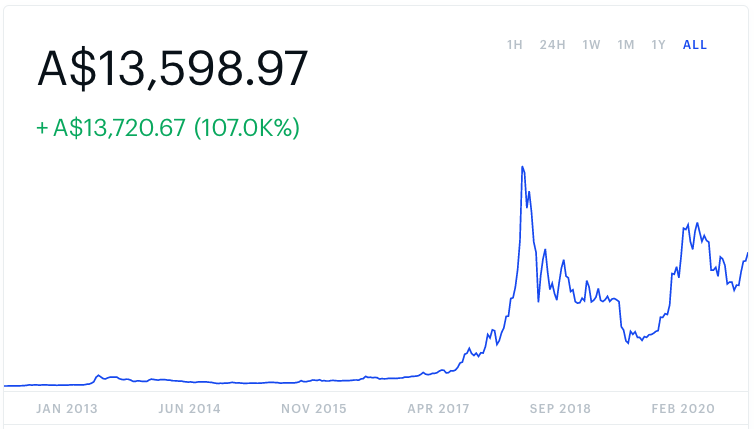Part III in our series on self-directed investing.
Welcome to the third and final installment of our series on self-directed investing.
In Taking Ownership Of Your Investments, we covered what it means to take charge of your investment portfolio, as opposed to trusting your financial future to a money manager.
In Choosing A Strategy & Assets For Your Portfolio, we looked at the main types of investment assets and portfolio management strategies at work in the markets today.
In this post, we’re showing you how building wealth today is more dependent than ever before on technology and data.
You’ll see why the old ways of analyzing your portfolio are now obsolete, and why we’re about to witness an explosion in software that helps investors harness the unprecedented amounts of financial data.
If you’ve not read parts one and two in this series, we encourage you to do so before reading this.
And if you’re new to Navexa, you should check out our homepage for a quick overview of the online portfolio tracker offer (and why!).
How Big Data Has
Changed Investing
“There’s no avoiding the realities of the Information Age. Organisations that continue to use 20th Century tools in today’s complex environment do so at their own peril.”
— Retired United States Army General Stanley McChrystal
This is the Age of Information.
We’re living in a time when we’re more connected to the world through technology than ever before.
We’re also generating and consuming more data than ever before.
Retail, advertising, medicine — you’ll be hard pressed to find a market or industry that hasn’t been disrupted or transformed by what we often refer to as ‘big data’.
Funnily enough, however, the world of finance has been a little slower than other sectors in its adoption of — and disruption by — technology and data.
Maybe that’s because the financial markets and banking systems are massive and deeply dependent on government for regulation and oversight.
But, things are changing for investors now. Fast.
According to Forbes:
‘Making money is no longer viewed simply as the result of the insightful decision making of market wizards. Rather, returns in markets are seen to follow from rigorous research. Investing and trading are becoming increasingly evidence-based.’
How, exactly, is big data transforming investing?
The biggest factor in the shift toward data-driven investing is that now there is nowhere to hide.
There’s so much information available about the historical and relative performance of stocks, sectors and markets…
That there is no longer any excuse for making decisions based on ‘a gut feeling’ or an opinion.
Everything you need to know about a trade or trend is available to you in the form of digital information.
Consider that more than $4.6 billion changes hands on the ASX alone each day.
That’s more than a trillion dollars a year.
Every single transaction is now a datapoint in a huge, ever-growing big picture which you can look at to determine how best to position your own investments.
If, that is, you have the tools to do so…
(And you’re not clinging on to the old spreadsheet, thinking the old ways of tracking your stocks will be good enough in the Age of Information.)
How To Harness Data In
Managing Your Portfolio
“To beat the market, you’ll have to invest serious
— American Economist Merton Miller
bucks to dig up information no one else has yet.”
We like this quote from Merton Miller.
Knowledge, as they say, is power.
When you’re investing, the more information you can gather, the more knowledge you have.
And the more knowledge you have, the better you can understand a situation and take action.
The only thing Merton (who won the Nobel Prize in Economic Sciences in 1990) got wrong with this quote is that you have to invest serious bucks to dig up the information you need to beat the market.
Maybe 10 years ago, this was true.
But today, with a portfolio tracker like Navexa, you don’t have to invest serious bucks.
For zero cost (or for a meagre monthly payment, depending on your requirements), you can now access analytics tools that give you massive insight into how the markets — and your own portfolio — is behaving.
Here’s an example.
Portfolio Contributions

This is just one tool we’ve created to help our users see at a glance one vital thing about their portfolio:
Which stocks are pushing your total returns higher, and which are dragging the portfolio down?
Twenty years ago working this out would have been a painstaking, manual process open to human error.
Today, with our service, you can literally see in one click how each holding in your portfolio is contributing to your overall performance.
This is one of many analytics tools we’ve built to help our users understand not only how their investments are performing, but how their entire portfolio compares to the wider market.
Use Navexa’s Online Portfolio Tracker To Make Smarter Decisions
Investing in the Age of Information, where big data makes it easier than ever to clearly see what your money is doing in the market, is arguably the best time ever to be building wealth.
The trends we’re seeing (and which we’re able to see because of data) show that more of us are ditching advisors and money managers to take ownership of our portfolios.
We have a huge number of assets and tactics to choose from on our wealth building journeys.
And by harnessing the power of data through modern portfolio tracking tools like Navexa, we can see more clearly the path to our financial future.
We hope this series on self-directed investing has been helpful to you!






